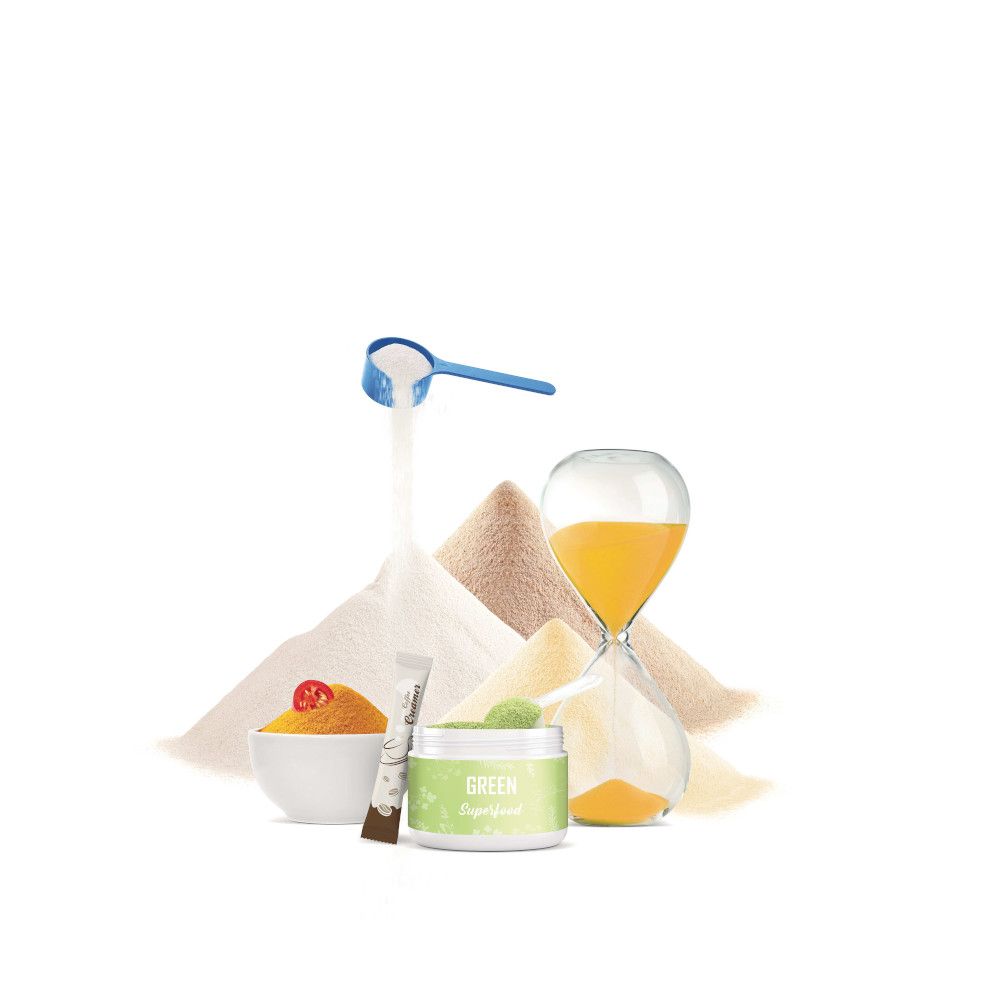Omya introduces nano-free anti-caking agent
It is based on functionalized calcium carbonate particles that have undergone a patented recrystallization process to create a new mineral composition and structure.
Image courtesy of Omya

Omya (Oftringen, Switzerland) introduced a nano-free anti-caking agent called Omyafood 120 for powder handling and processing, offering high porosity, high moisture-binding capacity, and reduced mechanical interlocking. It is based on functionalized calcium carbonate (FCC) particles that have undergone a patented recrystallization process to create a new mineral composition and structure.
“Market demand for food powders in convenience foods, drinks, sports nutrition, and nutraceuticals is continually rising,” said Tanja Budde, director innovation & technical marketing consumer goods at Omya, in a press release. “So, too, is the demand for safe, natural, and clean-label ingredients. The requirement to declare nano particles in a product is forcing manufacturers to find effective and easy to process natural alternatives. Omyafood 120 ticks all of these boxes.”
Porous Omyafood 120 particles counteract caking due to their strong absorption and moisture-binding capabilities. Moreover, the low-dust ingredient not only enhances flow but also allows for better storage and improves preservation of product quality throughout the supply chain. The new agent supports food powders and intermediates such as milk powder, milk protein for protein drinks, spice blends for seasoning, energy drinks, coffee creamers, salt, starch, sports powders, and vitamin premixes.
Prinova acquires Aplinova to further increase its footprint in Latin America
April 7th 2025Prinova has recently announced the acquisition of Brazilian ingredients distributor Aplinova, which is a provider of specialty ingredients for a range of market segments that include food, beverage, supplements, and personal care.










